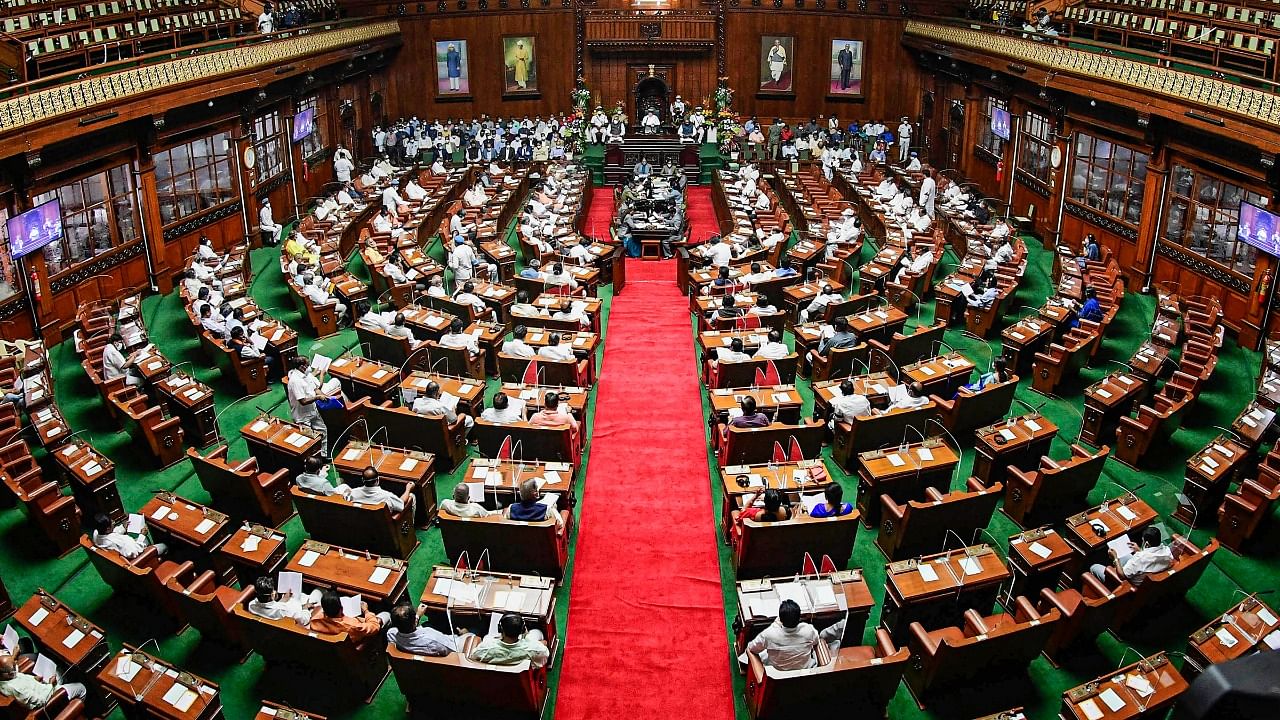
The Karnataka Assembly sat for only 25 days per year on average, many of which were disrupted by the protests and adjournments, a review by the Association for Democratic Reforms (ADR) and Karnataka Election Watch shows.
Since its inception in 2018, the Assembly had a total of 15 sessions but the number of sittings were too poor except for ninth and 12th sessions, which witnessed 20 and 26 sittings each. The conclusion of the budget session put the total number sittings at 150.
Advocate and state coordinator for Karnataka Election Watch Harish Narasappa said the study highlights the need for people to rethink about the people they were electing.
"Also, the MLAs are putting themselves on sale. This is right time for the voters to seek commitments from representatives that they won't jump parties," he said.
Trilochan Sastry, Chairman of ADR, said the Election Commission has become a mute spectator to hate speeches. "The Home Minister of the Country says Karnataka will see riots if Congress comes to power. A sitting MLA says he doesn't want votes from the Muslim community .The Representation of People Act has been violated but the Election commission has not taken action," he said.
Vinay Sreenivasa, advocate, said there was a need to keep watch on hate speech. "There has been a dip in hate speech incidents after the announcement of the model code of conduct. But just before the elections we saw a sudden spurt in hate speeches. A mechanism is needed to monitor and curb such behaviour regardless of elections," he said.
Sreenivasa also stressed the need for a reservation for women and people from below poverty line to ensure that democracy doesn't suffer under the hands of money and muscle power.
Kavita Ratna of the Grama Panchayat Hakkottaya Andolana said there was awareness among women in villages. "Women want to know how MLAs can skip the ethics while voters are forced to embrace slogans like 'our vote is not on sale'," she said and expressed concern about the lack of representation for women.